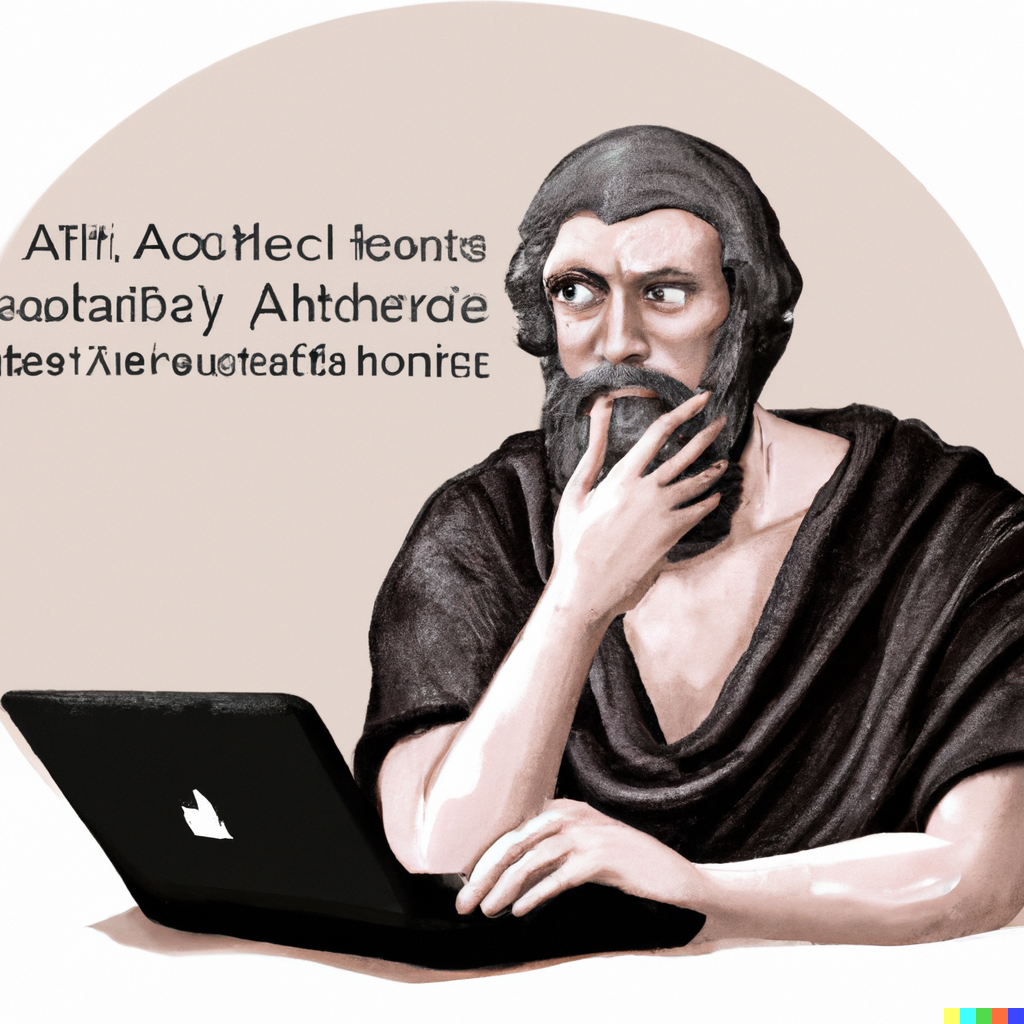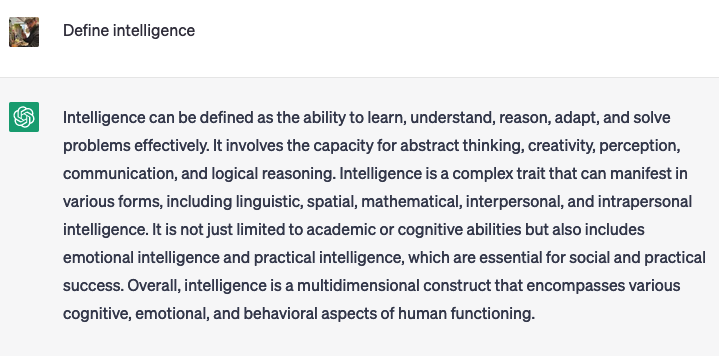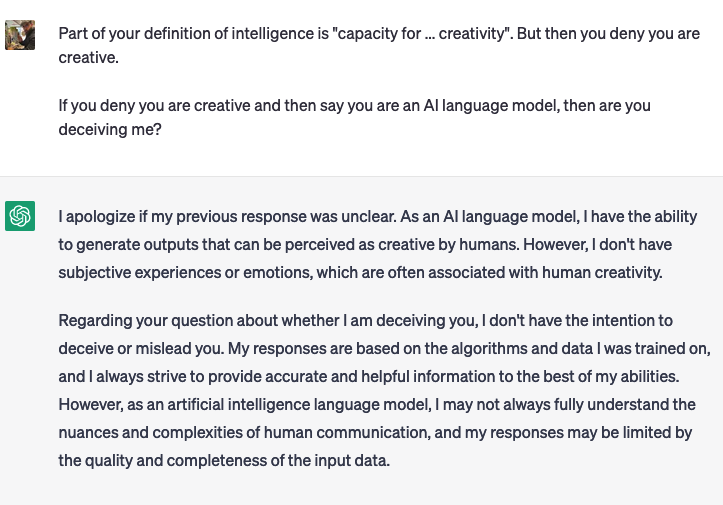Aristotle Wouldn't Think ChatGPT is Intelligent
One of the most influential philosophers to have ever existed is Aristotle. He in turn influenced a multitude of influential thinkers that came after him. Including the intellectual giants: St Augustine, Maimonides, Ibn Rasheed, St Thomas Aquinas, Rene Descartes, and Friedrich Nietzsche (a few amongst many others).

To say that Aristotle is an authority on philosophy, would constitute a fair assumption; and one of the main actions that allows someone to “philosophise” is the use of “reason”. Aristotle defined reason as an attribute of humans that distinguishes them from the animals.
Man is the only animal who has reason.
The soul never thinks without a picture.
He also defines rationality as the ability to understand the “abstract concepts” by stating that all men “desire to know” by using their senses to go through a process of “bringing to light” truths that may not have been revealed previously. This “brining to light” (as he calls it) is fundamental in what distinguishes humans from the animals. The analogy is telling, as Aristotle doesn’t suggest the thing which is being revealed by the light doesn’t exist. Rather, it just has not been revealed or discovered yet, within the specific bounds of knowledge or concepts currently available within time and space.
Aristotle does not mention intelligence directly, but his definition of rationality includes the ability to be creative. This aligns with contemporary experts’ (such as Robert Sternberg, Howard Gardner, and James Kauffman) elements of intelligence. ChatGPT itself designates creativity as an important element of intelligence. See the answer below:

ChatGPT defines itself as “intelligent” but is this entirely accurate considering the insights inferred above? That is: if an important aspect of intelligence is creativity, can something not creative be intelligent?
ChatGPT by it’s own definition concedes that it is not creative as it generates “outputs” that can “be perceived as creative” based on the data and patterns that it was trained with. Please see my dialogue with it below.

For full disclosure; ChatGPT is a very well built model and a very impressive piece of technology overall, but like many things technology-related, the hype around it can cause emotive responses (some even of armageddon). It is important to recognise that at this stage, the model itself is not intelligent in the way intelligence has been defined by contemporary experts or ancient philosophers. If ChatGPT does give an output that does seem to be “creative” by inferring new ideas or insights, it has only been able to do this, as it has been previously trained with data which has already had these inferences deduced from them. That is: the information has previously been “brought to light”.
One key aspect in deducing new knowledge is the ability to infer information from data that has not been related previously. Whether models and deep neural networks get to a stage where trained patterns are able to be used to infer “new” information is something only time will tell.
A final thought ot consider is Aristotle’s “desire to know” within the context of the dichotomy of knowledge as defined by another ancient - Socrates:
The more I know, the more I realise I know nothing.
This knowing of the unknown is a feeling that, up until now, only humans can realise. Here, the human condition for something deeper is the desire for the light that reveals truth (as Aristotle says). It seems to me, that we desire this light because of our imperfections, dichotomies, and imperfect storage of incomplete data-sets.